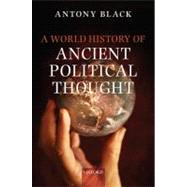
What is included with this book?
| Abbreviations | p. xii |
| Time Chart | p. xiii |
| Introduction | p. 1 |
| Early Communities and States | p. 6 |
| Human groups | p. 6 |
| Social behaviour and intelligence | p. 7 |
| Small groups and reciprocal altruism | p. 8 |
| Symbolic systems | p. 9 |
| Democracy? | p. 11 |
| Tribes | p. 11 |
| Hierarchy and ownership | p. 12 |
| Them and us | p. 14 |
| Sacred monarchy | p. 15 |
| Egypt | p. 22 |
| Morality: justice | p. 25 |
| Equality | p. 28 |
| Individuals | p. 29 |
| Spin | p. 29 |
| Conclusion | p. 30 |
| Mesopotamia, Assyria, Babylon | p. 33 |
| The functions of monarchy | p. 38 |
| Justice | p. 40 |
| City assemblies | p. 42 |
| Iran | p. 47 |
| Israel | p. 50 |
| The covenant | p. 52 |
| The people of Israel | p. 55 |
| Nation | p. 56 |
| The elders and the people | p. 57 |
| Monarchy | p. 60 |
| The Messiah | p. 63 |
| India | p. 69 |
| Castes | p. 72 |
| Kingship | p. 74 |
| Morality and pragmatism | p. 79 |
| Kautilya's Arthashastra: approach and method | p. 80 |
| Kautilya on political economy and foreign policy | p. 82 |
| Buddhism | p. 84 |
| China | p. 92 |
| The Mandate and the people | p. 95 |
| Status and meritocracy: 'advance the worthy' | p. 100 |
| Public service | p. 102 |
| Confucius on li (ritual conduct) and ren (humaneness) | p. 103 |
| Persuasion, not coercion | p. 105 |
| Mozi | p. 107 |
| The origins of the state | p. 108 |
| Shang Yang and Han Feizi: coercion and Realpolitik | p. 110 |
| A new kind of monarchy: the Laozi and Han Feizi | p. 115 |
| The First Emperor | p. 120 |
| Han Confucianism | p. 122 |
| Conclusion | p. 125 |
| The Greeks | p. 130 |
| The polis | p. 130 |
| Athens and demokratia | p. 138 |
| Plato | p. 148 |
| Aristotle | p. 158 |
| Conclusions | p. 168 |
| Rome | p. 175 |
| Cicero and the Roman republic | p. 175 |
| Stoicism and the principate | p. 191 |
| Power and philosophy in Rome and China | p. 197 |
| Graeco-Roman Humanism | p. 203 |
| Globalization | p. 205 |
| Pax romana | p. 205 |
| Cosmopolis | p. 207 |
| Natural law | p. 210 |
| The Kingdom of Heaven and the Church of Christ | p. 215 |
| After Jesus | p. 219 |
| How do we know? | p. 220 |
| Ritual | p. 222 |
| The church | p. 222 |
| The state | p. 224 |
| Themes: Similarities and Differences Between Cultures | p. 227 |
| Sacred monarchy | p. 227 |
| The state | p. 228 |
| Justice | p. 229 |
| The origins of kingship | p. 230 |
| The people | p. 231 |
| Social categories | p. 232 |
| Genres | p. 233 |
| Theory and practice; ethics and expediency | p. 234 |
| General Conclusion | p. 237 |
| Bibliography | p. 240 |
| Index | p. 255 |
| Table of Contents provided by Ingram. All Rights Reserved. |
The New copy of this book will include any supplemental materials advertised. Please check the title of the book to determine if it should include any access cards, study guides, lab manuals, CDs, etc.
The Used, Rental and eBook copies of this book are not guaranteed to include any supplemental materials. Typically, only the book itself is included. This is true even if the title states it includes any access cards, study guides, lab manuals, CDs, etc.